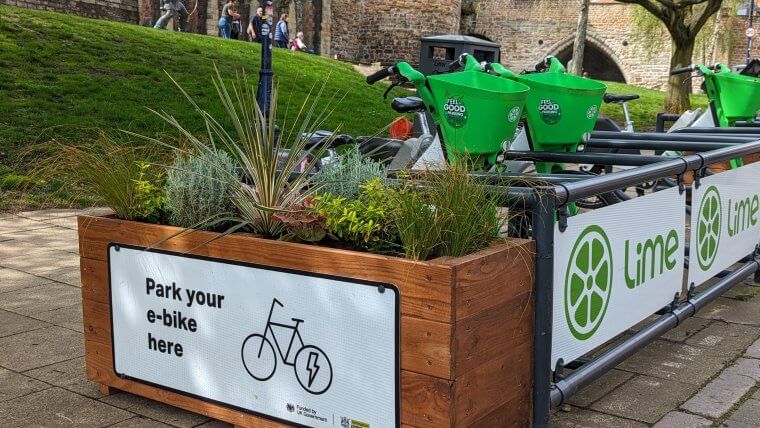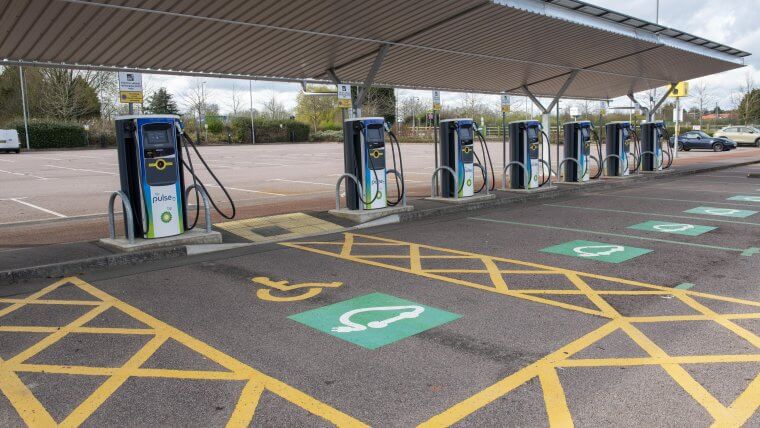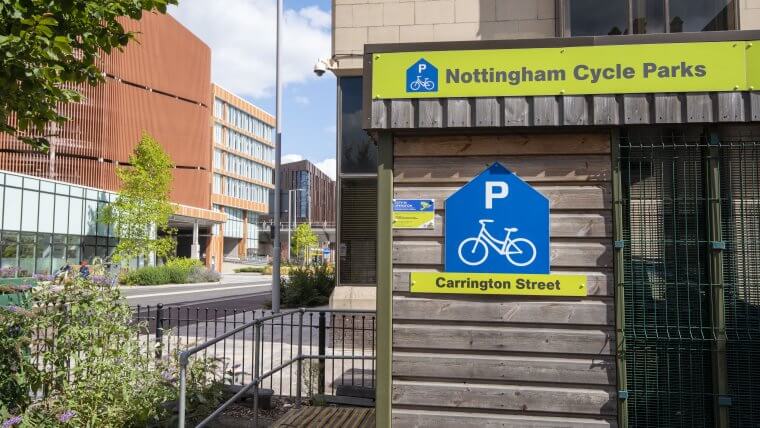28 April

By now, the bright yellow rental e-scooters on our streets will be a common – although not always welcome – sight for our residents and anyone travelling in the city regularly.
This 12-month trial in Nottingham is one of dozens taking place across the UK, backed and funded by the Government, as a way to unearth issues and find out how this emerging mode of transport could work, and should be governed, in the future.
We’re now halfway through the trial, so let’s take a look at how it’s going, and what we’ve found so far.
What’s going well?
The Nottingham scheme, operated by Wind Mobility, is the most popular single fleet in terms of total journeys, of all the trials currently taking place in the UK, according to industry publication Zag:
- The rental e-scooters have been ridden more than 240,000 times
- Around 16,000 people are registered, with a daily average of more than 1,500 riders in the last two months
- The average distance is 1.9 miles per trip
- They’ve covered more than 435,000 miles – that’s 17 times around the world!
In addition to the on-street rental, we’ve received a lot of positive feedback from key workers who have taken up the exclusive hire offer. NHS Test and Trace worker Niha lives in Arboretum. She said: “By using an e-scooter, I save over £90 a month on travel, which is great. They’re really efficient and easy to use, and have cut my journey time by more than half.”
Rosie, a dentist living in Trent Basin, has also taken part in the trial:

What isn’t going so well?
The trial is just that – a trial, and there are problems to solve and issues to address. The major issues with the scheme are:
- Inconsiderate parking
- Dangerous and illegal riding
- Drunk riding
We are particularly concerned by the impact of inconsiderate parking and pavement riding on people with disabilities, including visual impairments.
While the City Council and Wind Mobility will take all measures available to improve safety, as with all forms of transport, ultimately we need people to be responsible for their actions and be considerate of others.
What’s being done?
Inconsiderate parking – The council is continuing to mark parking bays in all designated parking zones, which were previously only visible to users via the app. These bays make it clear to everyone where e-scooters can be left safely and encourage more responsible parking. In addition, Wind Mobility has tripled the penalty to users who leave e-scooters badly parked, and is working on additional technological solutions to make it easier to report badly parked scooters.
Dangerous riding – We are still seeing issues with pavement riding and more than one person on an e-scooter – both of which are illegal. The e-scooters are a motor vehicle and can only be ridden where cycles are allowed, not on pavements. Wind Mobility have installed number plates on every vehicle, to make offenders easier to identify. They have also employed ambassadors to take action against dangerous riding across the city, supported by the City Council’s Community Protection team. Repeat offenders will have their account suspended, and face a possible ban.
Drunk riding – A more recent issue to emerge is drunk riding. E-scooters are motor vehicles and riding them under the influence of alcohol or drugs is an offence, as it poses a serious risk to both the user and others. Wind Mobility will immediately suspend the account of any user reported for drunk riding, and warns users that being found riding an e-scooter while under the influence may have serious consequences for their driving licence, which is linked to their Wind account. The operator has also worked with Nottinghamshire Police to ensure e-scooters are not immediately available in areas where people are likely to have been drinking.
In an effort to increase understanding and improve safety, Wind Mobility has continually refined its guidance to users. Measures include:
- Educational videos and communication, shared directly to users via the app as well as online
- The introduction of penalties and account suspensions for abandoned and badly parked e-scooters, pavement riding, and drunk riding
- Number plates rolled out across the fleet to more easily identify users
- Review of restricted areas where e-scooters cannot be ridden or can only be ridden at reduced speed
- Introducing and increasing the number of patrollers, who roam around the city and can take action against poor behaviour, including targeting hotspots and key routes
- Improved customer service with a dedicated Nottingham officer
- Revisions to the app to ensure users are aware of their responsibilities before they can ride
What next?
Over the remaining six months of the trial, the City Council and Wind Mobility will continue to respond to concerns and emerging issues – reducing the risk to pedestrians, caused by irresponsible use, will be one of the main priorities.
E-scooters are still a relatively new mode of transport, and there are definite benefits to their use. As with the introduction of any new form of transport, it takes time to get used to anything new. It’s important we give the trial the full 12 months to get an accurate picture of whether there is a permanent place for e-scooters on our roads.
At the end of the trial, we will submit our findings to the Department for Transport, to make further decisions on the use of e-scooters and the rules that should govern their use.

Photos courtesy of Jake Osborne





